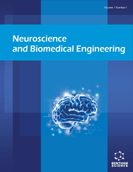Abstract
Background: Principle A of the Government and Binding Theory (Norm Chomsky, 1981, 1986) prescribes that a reflexive should refer to the local (short-distance) antecedent within the local syntactic domain. However, the Chinese bare reflexive “ziji” (自己) does not accord with Principle A. “Ziji” can refer to a local or long-distance antecedent, directly determined by context (co-text).
Objective: The present study aims to explore when context begins affecting “ziji” anaphora processing. Methods: Using the semantic priming technique, we examined the nature of the earliest stage of context- manipulated “ziji” anaphora processing. Results: A priming effect on target words under (semantically) relevant contexts was detected; we also found the priming effect on the L-target under the long-distance contextual condition, but found no priming effect on the relevant target (the S-target) under the local (short-distance) contextual condition. Conclusion: The present study suggests that contextual information begins affecting “ziji” anaphora at its earliest processing stage; that is, context immediately affects “ziji” anaphora processing once it is available. However, at the earliest processing stage, the activation of contextual information is still asymmetric or inadequate.Keywords: Anaphora, antecedent, anaphor, reflexive, “ziji”, context, semantic priming technique.
Graphical Abstract
 4
4 3
3 2
2 1
1

